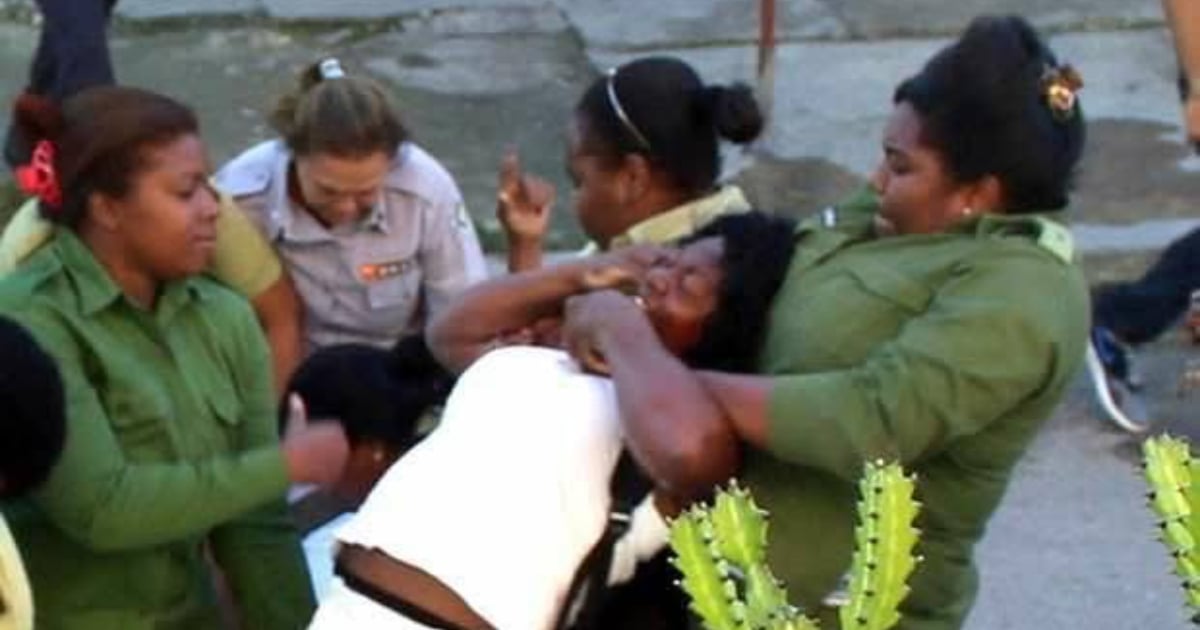The U.S. State Department has unexpectedly terminated foreign aid programs aimed at supporting opposition activists, political prisoners, and religious groups in Cuba, Nicaragua, and Venezuela. This move is causing concern over a potential shift in U.S. foreign policy toward these nations. The affected programs were managed by the International Republican Institute (IRI), a nonprofit affiliated with the Republican Party, and were focused on promoting democracy in countries with authoritarian regimes. According to the Miami Herald, the State Department determined that these projects were not of "national interest," leading to their complete cancellation, except for three programs in Venezuela, which have been temporarily suspended.
Independent Media in Cuba: Major Casualties of Funding Cuts
In Cuba, the funding cuts have directly impacted independent media outlets, which have been instrumental in exposing human rights violations on the island. CubaNet, a Miami-based outlet that has documented Cuban realities for decades, lost its funding from the U.S. Agency for International Development (USAID). Meanwhile, others relying on the National Endowment for Democracy (NED) face uncertainty. These media entities have been crucial in revealing government abuses and human rights breaches not covered by state-run publications.
The reduction of funds also affects organizations supporting political prisoners in Cuba, who will now face greater challenges in highlighting their plight and denouncing the Cuban regime's abuses. The Trump administration has defended these cuts, labeling a $1.5 million grant to "rebuild the Cuban media ecosystem" as "ridiculous" on its official X account (formerly Twitter).
Is There a Shift in U.S. Strategy Toward Latin America?
The funding reductions have prompted politicians and analysts to question whether the Trump administration is diminishing its commitment to promoting democracy in Latin America. Daniel Twining, president of the International Republican Institute, cautioned that the decision favors the regimes in Cuba, Venezuela, and Nicaragua, weakening support networks for the opposition and leaving groups vulnerable to government repression.
Meanwhile, Richard Grenell, Trump's special envoy to Venezuela, asserted that the administration is not pursuing regime change, which intensifies doubts about the U.S.'s commitment to democratizing the region. The termination of these programs leaves hundreds of support initiatives in Latin America in a precarious state. Additionally, most employees of the IRI, the NED, and related organizations have been placed on administrative leave or laid off, potentially affecting these institutions' future operational capacity.
With these cuts, Cuban opposition and independent journalism on the island are left in an even more vulnerable position, lacking the financial backing that allowed them to continue their work of denouncing and resisting the regime. CubaNet, based in Miami, and Diario de Cuba, based in Madrid, have publicly appealed to their readers for donations to sustain their efforts.
The reduction in U.S. foreign aid could bolster dictatorships by decreasing support for human rights organizations in crisis-stricken countries. This void might be exploited by powers like China and Russia to expand their influence in vulnerable regions. The situation raises questions about the U.S.'s commitment to promoting democracy and human rights in Latin America, particularly in countries under authoritarian rule.
Impact and Ramifications of U.S. Aid Cuts in Latin America
Why did the U.S. State Department cancel aid programs in Cuba, Venezuela, and Nicaragua?
The U.S. State Department concluded that the aid programs were not of "national interest," leading to their termination, except for three programs in Venezuela that are currently on hold.
What is the impact of these cuts on independent media in Cuba?
The funding cuts have severely affected independent media in Cuba, such as CubaNet and Diario de Cuba, which are now seeking donations to continue their critical reporting on human rights violations.
How might these aid cuts influence global dynamics?
The decrease in U.S. aid could empower authoritarian regimes by reducing support for human rights groups, while global powers like China and Russia might seize the opportunity to expand their influence in these regions.
